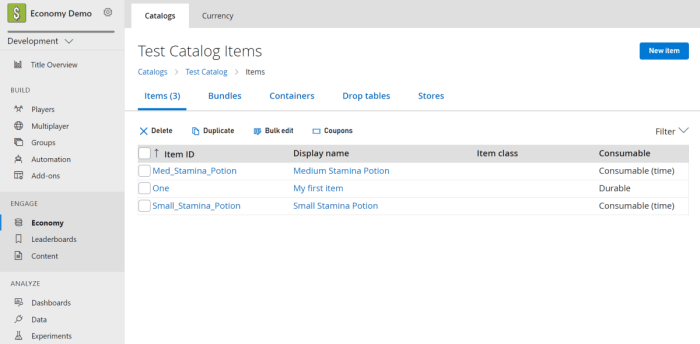A store manager timed Janette is an essential component of any successful retail operation. These individuals are responsible for overseeing all aspects of a store’s operations, from managing staff and inventory to providing excellent customer service. In this comprehensive guide, we will explore the key responsibilities of a store manager, discuss the importance of performance evaluation and time management, and provide tips for fostering a positive work environment and building strong customer relationships.
Effective store management practices are essential for the success of any retail business. Store managers play a vital role in creating a positive work environment, motivating employees, and ensuring that the store meets its sales goals. By understanding the key responsibilities of a store manager and implementing effective management practices, businesses can improve their profitability and customer satisfaction.
Store Management Practices

Effective store management practices are essential for the success of any retail business. They ensure that stores are run efficiently, customers are satisfied, and employees are motivated. Key responsibilities of store managers include:
- Planning and executing store operations, including staffing, inventory management, and customer service.
- Monitoring financial performance and implementing strategies to increase profitability.
- Maintaining a positive and productive work environment.
Store managers also play a vital role in motivating employees and fostering a positive work environment. By providing clear expectations, recognizing employee achievements, and creating a culture of respect and teamwork, store managers can create a workplace where employees are engaged and productive.
Performance Evaluation and Time Management

Performance evaluation is a crucial aspect of store management as it provides valuable insights into an employee’s performance, areas for improvement, and opportunities for growth. Regular evaluations foster employee development by setting clear expectations, providing constructive feedback, and recognizing achievements.
Best Practices for Performance Evaluations
Effective performance evaluations involve:
- Regularity:Conduct evaluations consistently, typically annually or semi-annually.
- Objective Assessment:Base evaluations on observable behaviors, quantifiable data, and specific job requirements.
- Clear Expectations:Establish performance goals and standards upfront, ensuring employees understand what is expected.
- Constructive Feedback:Provide specific, actionable feedback, focusing on both strengths and areas for improvement.
- Employee Involvement:Encourage employees to actively participate in the evaluation process, providing self-assessments and insights.
Time Management Strategies
Time management is essential for store managers to optimize their productivity and achieve store goals.
- Prioritize Tasks:Use the Eisenhower Matrix or similar tools to prioritize tasks based on urgency and importance.
- Delegate Responsibilities:Identify tasks that can be effectively delegated to team members, freeing up time for managerial responsibilities.
- Utilize Technology:Leverage time-saving tools like scheduling software, automated emails, and inventory management systems.
- Minimize Distractions:Create a distraction-free work environment by minimizing interruptions and setting aside dedicated time for focused work.
- Regular Reviews:Periodically assess time management strategies and make adjustments as needed to enhance efficiency.
Customer Service and Engagement: A Store Manager Timed Janette

In the competitive retail landscape, providing exceptional customer service is paramount to the success of any store. It fosters customer loyalty, drives sales, and creates a positive reputation.
Effective customer service strategies include:
- Personalized interactions: Greet customers warmly, address them by name, and show genuine interest in their needs.
- Attentive listening: Pay attention to customer concerns, ask clarifying questions, and demonstrate empathy.
- Prompt and efficient service: Respond quickly to inquiries, process transactions smoothly, and resolve issues efficiently.
- Product knowledge: Be well-informed about the store’s products and services to provide accurate information and recommendations.
- Positive attitude: Maintain a friendly and enthusiastic demeanor, even during challenging situations.
Role of Store Managers
Store managers play a crucial role in fostering a customer-centric culture and building strong customer relationships. They:
- Set clear customer service standards and expectations for staff.
- Provide training and support to ensure staff is equipped with the skills to deliver exceptional service.
- Monitor customer interactions and provide feedback to improve service quality.
- Empower staff to make decisions that enhance the customer experience.
- Seek customer feedback and address concerns promptly to maintain high satisfaction levels.
Inventory Management and Loss Prevention

Inventory management is a critical aspect of store profitability. Effective inventory management helps ensure that the store has the right products in stock to meet customer demand while minimizing the risk of overstocking or stockouts. Proper inventory control and stock replenishment are essential for maintaining optimal inventory levels.
Inventory Control and Stock Replenishment
* Establish clear inventory tracking systems to monitor stock levels and identify discrepancies.
- Implement regular inventory audits to ensure accuracy and identify potential losses.
- Use technology such as RFID tags or inventory management software to automate inventory tracking and optimize stock replenishment.
- Establish a safety stock level for each product to prevent stockouts and meet customer demand.
- Partner with suppliers to ensure timely and reliable delivery of stock.
Loss Prevention Strategies
* Implement security measures such as CCTV cameras, security guards, and access control systems to deter theft.
- Train staff on loss prevention techniques, including recognizing suspicious behavior and reporting incidents.
- Conduct regular security audits to identify potential vulnerabilities and implement corrective measures.
- Use anti-theft devices such as tags or sensors to prevent shoplifting.
- Establish clear policies and procedures for handling cash, returns, and exchanges to minimize the risk of internal theft.
Sales and Marketing Strategies

Effective sales and marketing strategies play a pivotal role in driving store revenue. They help attract and retain customers, increase brand awareness, and promote products and services.
To develop successful strategies, it’s crucial to understand the target market, their needs, and their shopping habits. Data analysis and customer segmentation can provide valuable insights into these aspects.
A store manager timed Janette’s performance, which reminded her of the time she took the EMT final exam with 100 questions . Janette recalled the intense focus she had during both experiences, determined to succeed in both her retail and medical endeavors.
Marketing Tactics, A store manager timed janette
- Promotions and discounts:Offering discounts, coupons, and loyalty programs can entice customers to make purchases.
- Social media marketing:Engaging with customers on social media platforms can help build relationships and promote products.
- Email marketing:Sending targeted emails with personalized content can nurture leads and drive sales.
- Influencer marketing:Collaborating with influencers can help reach a wider audience and build credibility.
- Content marketing:Creating valuable and informative content can attract potential customers and establish thought leadership.
Data Analysis and Customer Segmentation
Analyzing sales data, customer demographics, and purchase history can help identify patterns and trends. This information can be used to segment customers into groups based on their shared characteristics and preferences.
Targeted marketing campaigns can then be developed for each segment, ensuring that the right message is delivered to the right audience. This approach increases the likelihood of conversion and customer loyalty.
Financial Management and Reporting

Financial management is crucial for store managers as it allows them to effectively plan, allocate, and control financial resources to achieve store profitability and operational efficiency.
Budgeting
- Create realistic and comprehensive budgets that Artikel revenue, expenses, and profit projections.
- Monitor budget performance regularly and make adjustments as needed to ensure financial targets are met.
Expense Control
- Implement cost-effective measures to minimize expenses, such as negotiating with suppliers and optimizing inventory levels.
- Regularly review expenses and identify areas for potential savings.
Financial Reporting
- Prepare accurate and timely financial reports that provide insights into store performance and financial health.
- Use financial reports to identify trends, make informed decisions, and communicate financial results to stakeholders.
Financial Accountability and Profitability
- Store managers are responsible for ensuring financial accountability by maintaining proper records and adhering to financial policies.
- By implementing effective financial management practices, store managers can maximize store profitability and contribute to the overall financial success of the organization.
General Inquiries
What are the key responsibilities of a store manager?
Store managers are responsible for overseeing all aspects of a store’s operations, including managing staff, inventory, and customer service.
What is the importance of performance evaluation for store managers?
Performance evaluation is essential for store managers to track their progress and identify areas for improvement.
What are some effective time management strategies for store managers?
Store managers can use a variety of time management strategies to improve their productivity, such as setting priorities, delegating tasks, and using technology.